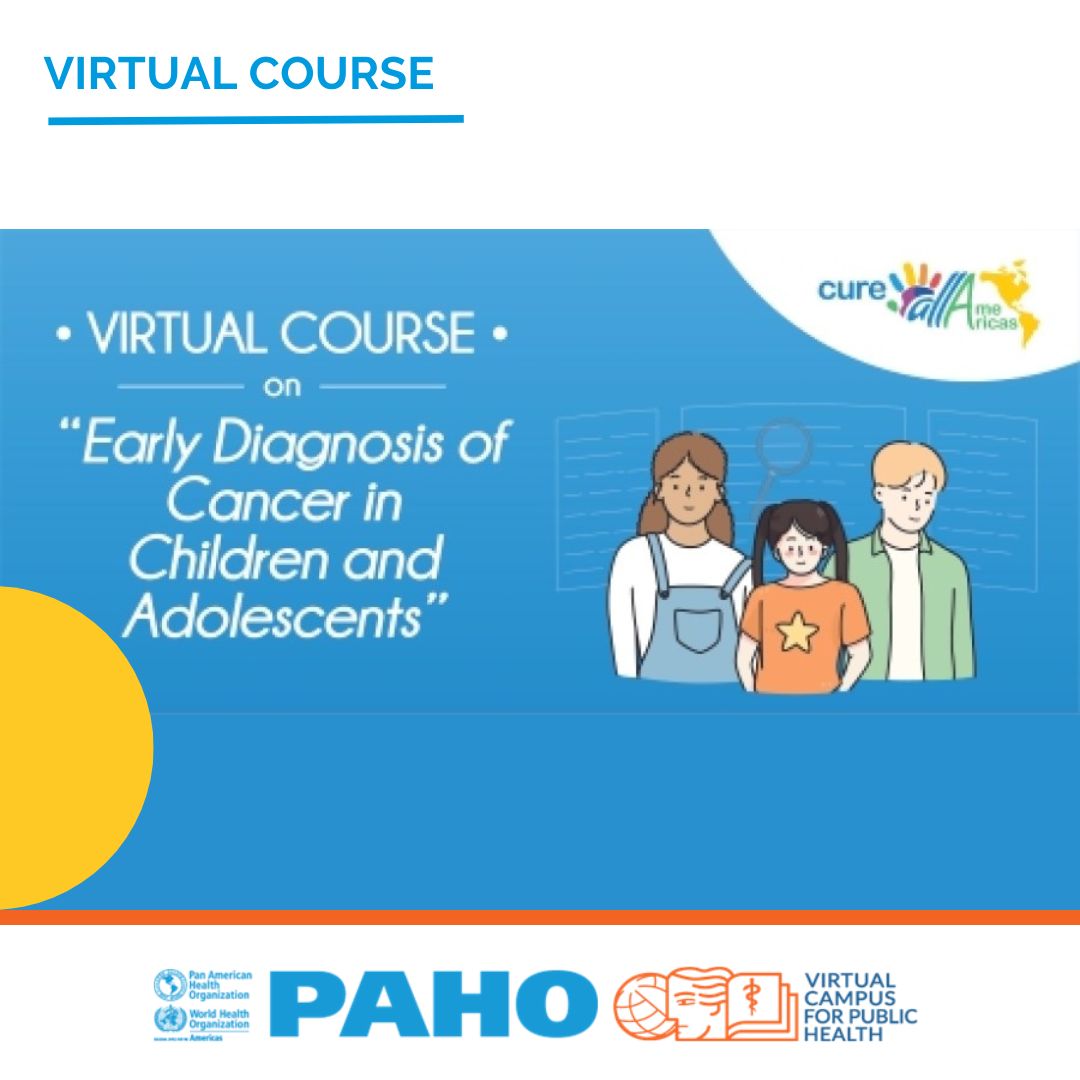
The purpose of this course is to contribute to the reduction of morbidity and mortality in children and adolescents with cancer by strengthening the capacities of healthcare professionals on the early diagnosis of cancer with concepts and learning instruments that allow them to recognize the signs and symptoms of cancer in a timely and early manner.
The course will also cover the epidemiological, genetic, clinical and initial management aspects of children with suspected cancer. Information will also be provided on the interpretation of complementary tests for the timely diagnosis of cancer in childhood and adolescence.
Purpose
Provide a framework for healthcare workers aimed to strengthen their capacities on the early diagnosis of cancer in childhood and adolescence.
Objectives
At the end of the course, participants will be able to:
- Define what the key concepts of cancer in childhood and adolescence.
- Describe the risk factors and genetic syndromes associated with cancer in childhood and adolescence.
- Apply knowledge in clinical practice (especially primary care).
- Examine the process of initial diagnosis and management of various types of cancer in childhood and adolescence.
- Know the interpretation of complementary tests used in the initial diagnosis of cancer in childhood and adolescence.
Recipients
The Course is aimed at Healthcare Workers (especially those in the first level of care):
- Doctors
- Non-Medical Workers
Course duration
Ten hours
Course modality
Self-study course, free, open to the public and without deadlines to complete it.
Course structure
The "Virtual Course in Early Cancer Diagnosis in childhood and adolescence” has been designed to train the health worker on the most relevant elements in the knowledge of the timely diagnosis of cancer in the pediatric population. The course consists of 10 modules.
The Course modules are listed below:
- Introduction
- Module 1. Key Concepts of Cancer in childhood and adolescence.
- Module 2. Risk factors and genetic syndromes associated with cancer and childhood and adolescence.
- Module 3. Importance of early detection of cancer in children and adolescents.
- Module 4. Hematological neoplasms
- Module 5. Solid abdominal neoplasms
- Module 6. Neoplasms of bone and soft tissue
- Module 7. Central nervous system tumors, retinoblastoma
- Module 8. Neoplasms of germinal origin
- Module 9. Interpretation of complementary exams
- Module 10. Initial management of the child with suspected cancer

